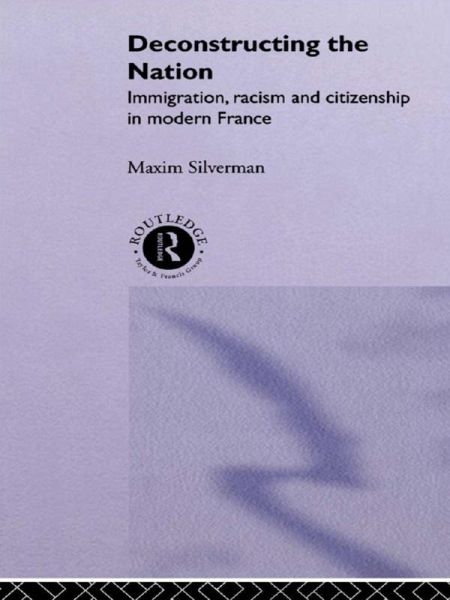
Deconstructing the Nation (eBook, PDF)
Immigration, Racism and Citizenship in Modern France
Versandkostenfrei!
Sofort per Download lieferbar
45,95 €
inkl. MwSt.
Weitere Ausgaben:

PAYBACK Punkte
23 °P sammeln!
Deconstructing the Nation examines the connection between racism and the development of the nation-state in modern France. The author raises important questions about the nature of citizenship rights in modern French society and contributes to wider European debates on citizenship. By challenging the myths of the modern French nation Maxim Silverman opens up the debate on questions of immigration, racism, the nation and citizenship in France to non-French speaking readers. Until quite recently these matters have largely been ignored by researchers in Britain and the USA. However, European inte...
Deconstructing the Nation examines the connection between racism and the development of the nation-state in modern France. The author raises important questions about the nature of citizenship rights in modern French society and contributes to wider European debates on citizenship. By challenging the myths of the modern French nation Maxim Silverman opens up the debate on questions of immigration, racism, the nation and citizenship in France to non-French speaking readers. Until quite recently these matters have largely been ignored by researchers in Britain and the USA. However, European integration has made it essential to look beyond national frontiers. The major part of his analysis concerns the period from the end of the 1960s to the beginning of the 1990s. Yet contemporary developments are placed in a historical context: first through a consideration of the construction of the modern question of immigration since the second half of the nineteenth century, and second through a survey of political, economic and social developments since 1945. There are analyses of the major debates on nationality in 1987 and the headscarf' affair of 1989. Finally questions of immigration, racism and citizenship are considered within the framework of European integration.
Dieser Download kann aus rechtlichen Gründen nur mit Rechnungsadresse in A, B, BG, CY, CZ, D, DK, EW, E, FIN, F, GR, HR, H, IRL, I, LT, L, LR, M, NL, PL, P, R, S, SLO, SK ausgeliefert werden.













